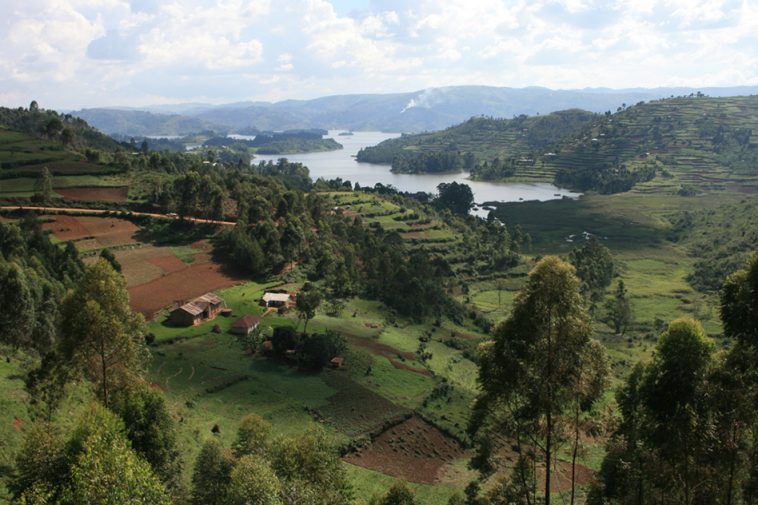Environmental Conservation and management in Uganda in particular and Africa in general by bringing the knowledge and practices of people from different disciplinary knowledge in the false hope that ecosystems, habitats and areological farming systems will be conserved. Traditional ecological-biological, sociobiological, and sociocultural knowledge systems have perennially been excluded from environmental conservation and management systems, yet the conservation of natural systems that we have tried to conserve was conserved as a result of the effectiveness of those systems.
This has been ethically, morally, ecologically, and environmentally wrong yet it continues even today. Many professionals active in environmental conservation and management have also been produced and continue to be produced wrongly mostly disciplinarily as if there is nothing wrong with that. Participatory biodiversity initiatives have been based on the false thinking and belief that tradition knowledge systems were inappropriate for conservation and management of the environment meaningfully and effectively, yet those systems were time-tested. When locals are invited to participate, they are invited to teach them the new ways of conserving and managing the environment are superior to the traditional one. Yet when the colonialists arrived in Uganda, they were awed by the beauty of the environment they found.
In his article “Integrating Multiple Knowledge Systems into Environmental Decision-Making: Two Case Studies of Participatory Biodiversity Initiatives in Canada and Their Implications for Conceptions” Kelsey (2003) wrote that biodiversity initiatives have traditionally operated within a ‘science-first’ model of environmental decision-making. The model assumes a hierarchical relationship in which scientific knowledge is elevated above other knowledge systems. Consequently, other types of knowledge held by the public, such as traditional or lay knowledges, are undervalued and under-represented in biodiversity projects. This, according to Kelsey (2003) is wrong. He looked at the role that constructivist conceptions of education play in the integration of alternative knowledge systems in environmental decision-making. In so doing, he argues the conservation, sustainable use and equitable sharing goals outlined by the Convention on Biological Diversity (signed in 1992 under the auspices of the United Nations Environmental Programme) demand new models of governance which embrace the adaptive management qualities of learning organisations.
Learning organisations are those which recognise that not only one knowledge system -the disciplinary knowledge system exists and can perennially produce the knowledge and people we need to conserve and manage the environment meaningfully effectively. In fact this, as implied above, knowledge system has failed, but universities on the globe in general and Africa in particular have stuck to it and continue to produce knowledge workers and professionals we do not need, and who soon become environmental pollutants and roadblocks to effective environmental conservation and management. In Uganda, Makerere University made an academic policy in the early millennium that highlighted the supremacy of disciplinary education over other knowledge systems. In other words, as in the 20th Century Makerere University saw no use for general education, which is the typical education in traditional knowledge systems. It was not ready to open up to even alternative knowledge systems -the ones called new and different knowledge systems. These are interdisciplinarity, crossdisciplinarity, transdisciplinarity and extradisciplinarity or non-disciplinarity. The latter is what approximates to the traditional knowledge systems.
I have extensively written about the new and different knowledge systems. My hope has been that one day our universities will wake up to truism that they are the major roadblock to knowledge integration for meaningful and effective management of the human environment and the conservation and management of the environment.
My first article to reawaken the universities to the reality of alternative knowledge systems was written in 2004 at the time when Makerere University was over-valuing disciplinary research and education was titled “Interdisciplinarity: The Sense and Nonsense of Academic Specialisation”. Since then, I have written numerous articles stressing the need to integrate or reintegrate knowledge (see below) in higher education.
I am now writing or suggesting that that unless universities change their approach to education to accommodate the new and different knowledge systems and integrate the traditional knowledge systems in higher education. I am also writing that this should be the pre-requisite for meaningful and effective environmental conservation and management in the 21st century. All the knowledge systems can coexist on the same university campus to produce graduates who are less narrow-minded, more open-minded, more team-oriented and future ready and can think critically, analyse critically, reason critically and solve problems without being told what to do how to do it.
In other words, integrative and integrating universities will be at the centre creativity and innovation instead of concentrating on producing theorists and arrogant knowledge workers who are more happy waving their academic certificates. These are the ones I once referred to in an article as “The Educated fools”. We cannot rely on them to conserve and manage the environment meaningfully and effectively. Their solutions will be our new problems with which we have no experience either interacting with or providing solutions to them.
We must begin to conserve and manage our environment by accommodating and adopting multiple knowledge systems. They are there waiting to be used, but our universities are still resisting them thereby endangering the long-term survival of our environment in a more natural state, our human species and other species connected to our species in an intricate way.
For God and My Country
Further Reading
Kelsey, Elin (2003). Integrating Multiple Knowledge Systems into Environmental Decision-Making: Two Case Studies of Participatory Biodiversity Initiatives in Canada and Their Implications for Conceptions.” Environmental Values 12, no. 3 (2003): 381–96. doi:10.3197/096327103129341379
Oweyegha-Afunaduula (2004). “Interdisciplinarity: The Sense and Nonsense of Academic Specialisation In: Ruth Mukama and Murindwa-Rutanga (Editors). Confronting Twenty-First Century Challenges: Analyses and Dedications by National and International Social Scientists. Vol 1. Published by Faculty of Social Science, Makerere University, Kampala, Uganda.
Oweyegha-Afunaduula (2023). Knowledge Integration Revolution in Higher Education: Interdisciplinarity. Muwado, November 2 2023, https://muwado.com/knowledge-integration-revolution-in-higher-education-inter-disciplinarity/?v=2a0617accf8b Visited on 4 February 2025 at 20:24 pm EAT.
This post was created with our nice and easy submission form. Create your post!




